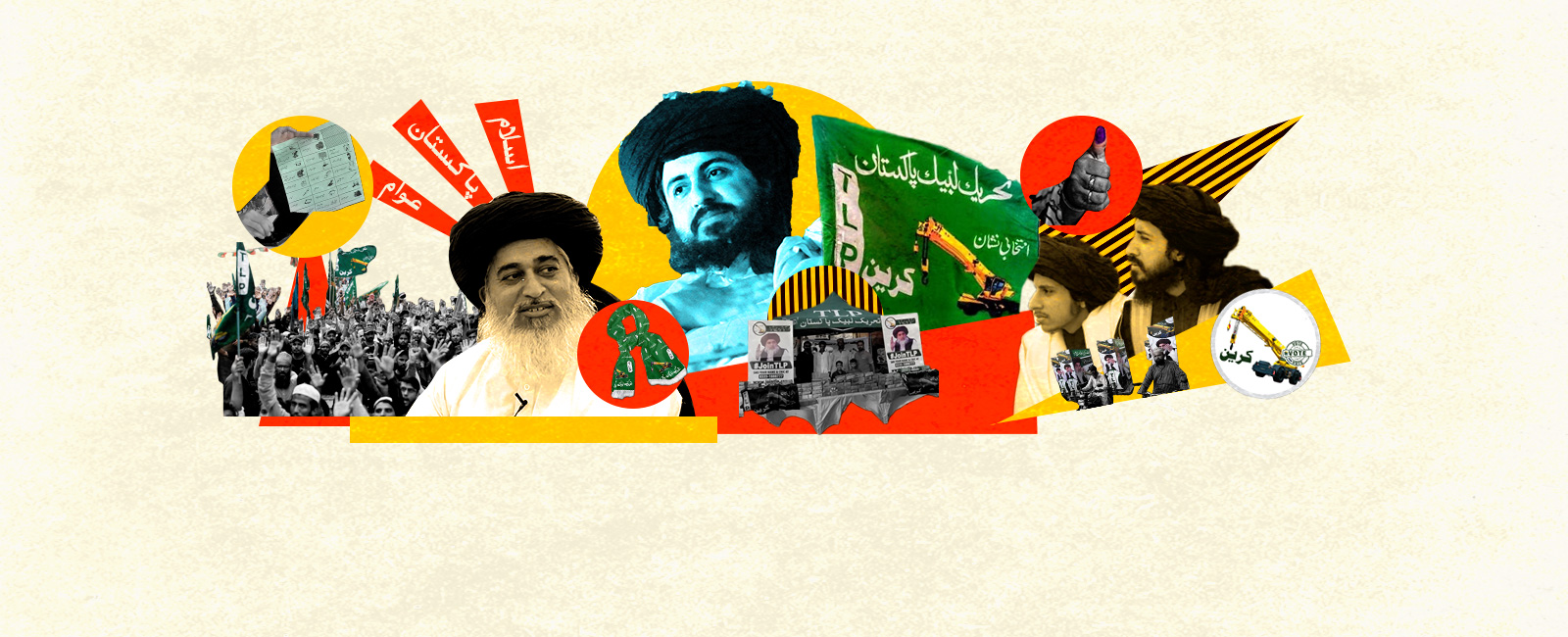TLP: Into the polls without Khadim's charisma, support from powers that be
TLP is striving to uphold its religious identity, while making its political mark, pledging to rid the country of all outstanding international debt

With its founder gone, the religio-political party, Tehreek-e-Labbaik Pakistan (TLP), which once had all the aegis of the power corridors, is heading into the elections on a wing and a prayer.
Founded in 2015 by Khadim Hussain Rizvi, the far-right party rose to recognition following the hanging of Mumtaz Qadri, the Elite police commando, who assassinated Salman Taseer, the governor of Punjab.
Rizvi staunchly justified Taseer's assassination and fiercely championed Section 295-C of the Pakistan Penal Code (PPC), which deals with the punishment for blasphemy.
The little-known white-bearded cleric took the country’s political scene by disrupting the federal capital, Islamabad, and Rawalpindi, the garrison town that houses the country’s powerful army headquarters.
The crippling sit-in made a ginormous statement about the TLP and its founder Khadim Rizvi, which was heard by the ruling elite. This move laid bare the TLP's devastating street power as the police proved to be a wall of sand before the disruptive power of the TLP’s monolithic sit-in, masterminded by Rizvi, at the peak of the ruling Pakistan Muslim league-Nawaz's (PML-N) power.
The TLP garnered public and political support during a march from Punjab to Islamabad, demanding the resignation of PML-N's law minister Zahid Hamid over allegations of manipulating the Elections Act, 2017.
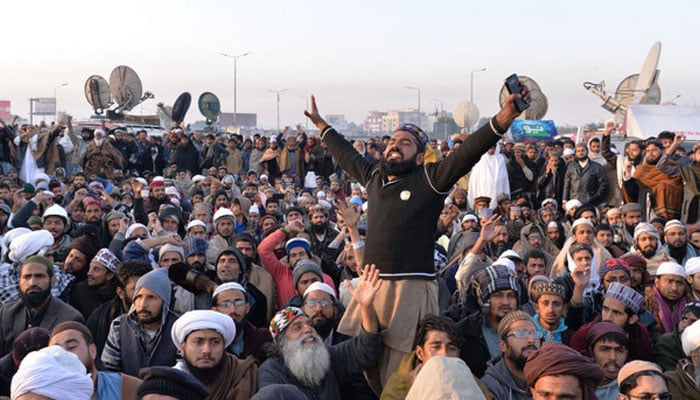
The ensuing clashes between Rizvi's boosters and security forces were so violent that the then army chief had to step in to reach a settlement brokered by Faiz Hameed, former Director General of Inter-Serviced Intelligence (ISI), Pakistan’s premier spy agency.
Post-protest, Rizvi solidified his standing as a resolute religious leader in the Barelvi faction, initiating the resurgence of the Barelvi school of thought. The Faizabad sit-in demonstrated the Barelvis' capacity for violence and ability to compel the state to meet their demands.
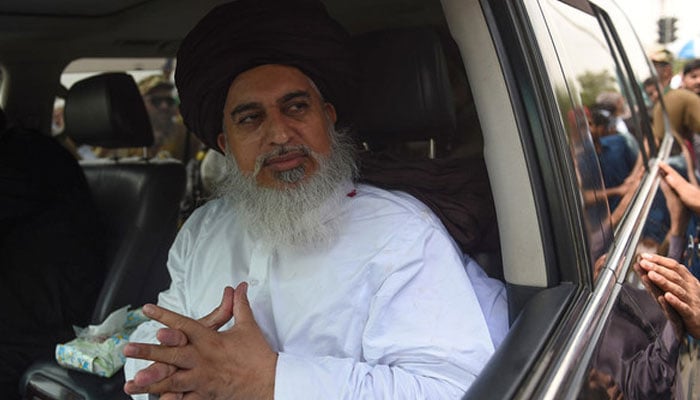
The TLP's religio-political grip grew stronger and outreach extended further, evidenced by protests against Asiya Bibi's not guilty ruling and for demanding the expulsion of the French ambassador from Pakistan.
In 2021, violent TLP protests in Lahore and nationwide led to casualties and injuries, prompting the government to label them a banned outfit. Negotiations ensued, resulting in the TLP's removal from the banned list and the delisting of its activists.
According to some political pundits, despite its raging street power, the TLP, for the February 8 elections, is unlikely to have even a fraction of the electoral support it had in the 2018 polls because Khadim Hussain Rizvi was there. The powers that be that gave the TLP a bit too much lift in 2018 are on the face of it not in the same mood this time around.
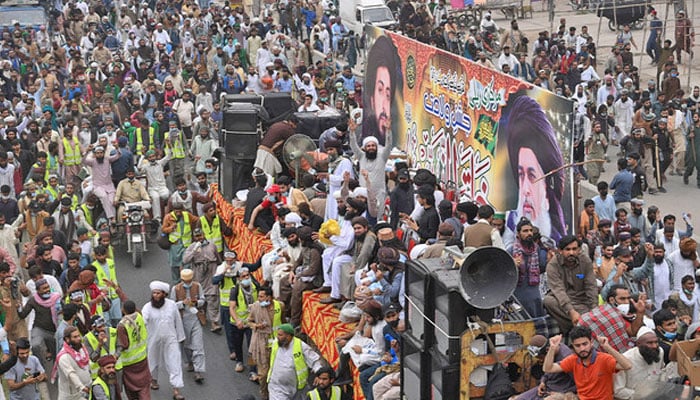
In the 2018 general election, the TLP became the fifth-largest party in Pakistan, bagging 2.2 million votes but winning no seats in the National Assembly. In the 2022 by-elections, the party's share of votes in Punjab declined significantly.
While Hafiz Saad Hussain Rizvi, son and political successor of Khadim Rizvi, has somehow coped with the internal and external party crises, the TLP faces a Herculean task in the upcoming elections.
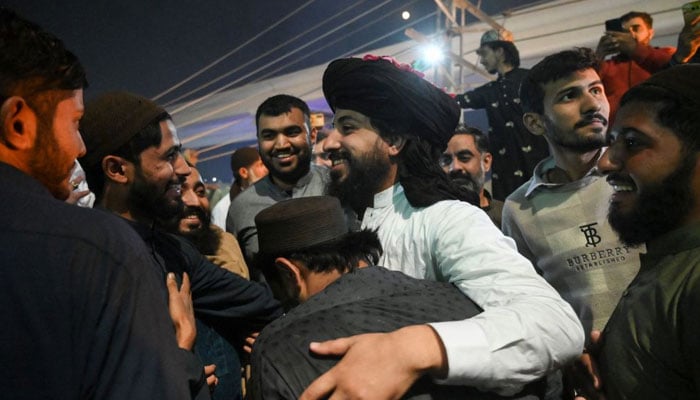
The party has fielded several candidates in various constituencies, particularly in Punjab and Sindh, with a manifesto stressing minority rights, a 'panchayat' (elders court) system for justice, and the establishment of separate girls' educational institutions.
The TLP is currently striving to uphold its religious identity, while making its political mark, pledging to rid the country of all the outstanding international debt; however, the party’s manifesto is yet to be populated with its miraculous economic plan.
Sher Ali Khalti is a Lahore-based correspondent for The News. He posts @sheralikhalti
— Header and thumbnail design by IMM Creative



